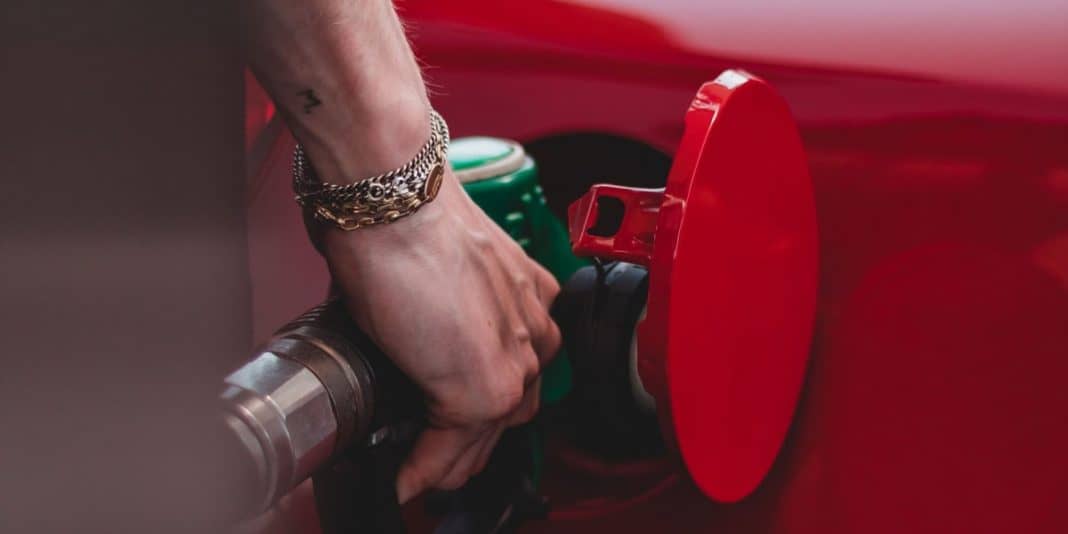Federal profiteering not in country’s best interests.
Although today’s highwaymen are not wearing masks, Canadian citizens are forced to stand and deliver almost 40 percent of the cost of each litre of gas to government coffers.
According to the Canadian Taxpayers Federation, depending on where you live, the federal, provincial and regional taxes represent up to 38 cents of the cost for each litre of gas.
Unfortunately, these monies are not segregated by the federal government and expended in support of Canada’s ailing transportation infrastructure, as provincial governments do for some provinces.
For example, in British Columbia, the government segregates 1.25 cents per litre for BC Ferries and a further 3.25 cents per litre for the BC Transportation Financing Authority. Remember that it is the infrastructure that affects our productivity and enables us to compete globally.
U.S. President George W. Bush, recognizing the importance of infrastructure to a nation’s competitiveness, has announced a proposal to spend $247 billion on roads, bridges and mass transportation.
What do our federal Liberals do with the gas money? They prefer to deposit the windfalls into general revenue. Why? Could it be that general revenue has been the source for funding the billions of dollars needed by such “wonderful” federal initiatives such as the sponsorship scandal and gun registration, without which these activities could not have taken place?
Canada’s total crude oil production in 2004 was about 2.6 million barrels a day, making it the ninth-largest oil producer in the world. We have about 175 billion barrels of established oil reserves as of 2005, second only to Saudi Arabia. Ninety-five percent of these reserves are contained in Alberta’s oil sands deposits.
According to the Canadian Association of Petroleum Producers, Canada exports about 1.6 million barrels per day of crude oil to the United States. Ten percent of the oil consumed in the U.S. comes from Canada, a point our American friends sometimes forget or overlook when they brush aside the law and disregard lumber-dispute rulings.
The point is, we have more oil than we consume. Artificially high fuel prices endanger our economic engine. Conservative leader Stephen Harper and many others have accused the Liberals of profiteering from high gasoline prices and have demanded they reduce their take at the pump by a nickel a litre.
This seems like a reasonable request. After all, the federal Liberals had promised to remove the double taxation seven-per-cent GST on gas once the deficit was removed. Well, there has been no deficit in Canada for seven years. Indeed, there has been an embarrassing surplus of up to $9 billion annually.
It seems to me that at times the Canadian taxpayer has the memory retention of a gnat.
In about 15 weeks, the federal Liberals will descend upon local constituencies and, like honeybee keepers, blow smoke in voters’ faces. For a moment, the smoked voter will become docile while their vote is extracted and the Liberals are returned to power where issues such as gouging at the pump will again emerge.
Many of us concerned with the environment may see the escalation in fuel costs as a good thing. It will force those who can to consider alternate forms of transportation such as cycling and using mass transit. These might be more viable options if the governments used the $10-billion fuel flat tax to improve the infrastructure. But they have not.
Higher prices and using less fuel are a double-edged sword for Canada. What is often overlooked is the fact that oil is a commodity like salt. Global commodity consumers will purchase commodities from the sellers with the lowest cost. Saudi Arabia can extract one barrel of oil at a cost of $1.50 US, while in Canada, it is many times more costly.
Accordingly, any decrease in the global demand for oil will not affect the OPEC-producing countries but rather will reduce the number of products countries such as Canada can deliver to the marketplace.
Recently, Canadians have been taking pride in referring to the loonie as a “petrodollar.”
Yes, we have done well in the current oil marketplace. However, if the environmentalists are right and oil demand falls, then much of a global oil production reduction will significantly affect Alberta and other oil-producing provinces.
At $40 per barrel, our competitiveness against OPEC producers falls and the so-called Canadian petrodollar will weaken.
With the federal election a few months away, we must demand that Finance Minister Ralph Goodale and his colleagues get their hands out of our purse and remember it is our money.
Can we remember? Don’t get smoked – be a smart bee.
Note: This article was originally published in 2005.



